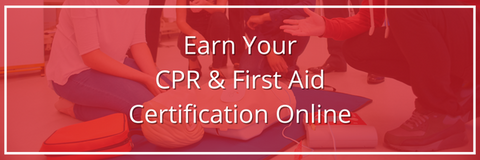
10 Essential First Aid Tips Everyone Should Know
Share
Accidents and emergencies can occur at any time, and having basic knowledge of first aid can make a significant difference in saving lives and preventing further harm. While it's crucial to seek professional medical help in serious situations, understanding a few essential first aid tips can provide immediate assistance until help arrives. In this blog post, we will discuss ten vital first aid tips that everyone should know. Remember, these tips are not a substitute for professional medical advice but can help you respond effectively in emergency situations.
- Assess the Situation:
The first step in any emergency is to assess the situation calmly. Ensure that you and the injured person are safe from any potential dangers. Look for hazards such as fire, electrical wires, or traffic before proceeding to help. Your safety is paramount, so always prioritize it.
- Call for Help:
In case of a severe injury or a life-threatening situation, call emergency services immediately. Provide them with accurate information about the incident, location, and the number of people involved. Ensure you mention your location precisely for a quick response.
- Perform CPR (Cardiopulmonary Resuscitation):
CPR is a crucial skill that can save lives during cardiac arrest. If the person is unresponsive and not breathing, begin CPR by pushing hard and fast in the center of the chest, aiming for a rate of 100-120 compressions per minute. Remember, if you are unsure about performing CPR, it is always better to attempt it rather than doing nothing. Consider taking a CPR course from a reputable organization like MyCPR NOW to learn the proper techniques.
- Control Bleeding:
In cases of bleeding, it's important to control it as quickly as possible. Apply direct pressure to the wound using a clean cloth or your hand, if necessary. Elevate the injured body part above the heart, if possible, to help reduce blood flow. If bleeding persists, apply additional pressure and seek medical help promptly.
- Treat Burns:
Burns can range from minor to severe, and the appropriate first aid will depend on the severity. For minor burns, run cool (not cold) water over the affected area for at least ten minutes. Avoid using ice as it can cause further damage. Cover the burn with a sterile non-stick dressing. In the case of severe burns, call for medical assistance immediately.
- Handle Fractures:
If you suspect a fracture, do not attempt to realign the bone yourself. Instead, immobilize the injured area using splints, towels, or any other available materials. Apply ice packs wrapped in a cloth to reduce swelling. Seek medical attention promptly to ensure proper treatment.
- Address Choking:
Choking can be a life-threatening situation, particularly if the airway is completely blocked. If the person is conscious but unable to cough, speak, or breathe, perform the Heimlich maneuver by standing behind them, placing your hands above their navel, and applying upward pressure. If the person becomes unconscious, initiate CPR immediately.
- Manage Allergic Reactions:
Allergic reactions can range from mild to severe and may require immediate intervention. If someone is experiencing a severe allergic reaction known as anaphylaxis, look for an auto-injector if available and administer it as instructed. Call emergency services and provide them with all relevant information about the situation.
- Treat Eye Injuries:
Eye injuries require special attention to prevent further damage. If a foreign object enters the eye, avoid rubbing it. Instead, try to flush the eye gently with clean water or saline solution. If there is a chemical injury, flush the eye continuously for at least 15 minutes and seek medical help.
- Be Prepared:
One of the most crucial aspects of first aid is being prepared. Keep a well-stocked first aid kit at home, in your car, and at your workplace. Familiarize yourself with the contents of the kit and ensure it is regularly replenished and up to date. Additionally, consider taking a first aid and CPR course from a reputable organization like MyCPR NOW to enhance your skills and knowledge.
Conclusion:
Having basic first aid knowledge can make a significant difference in emergency situations. The ten essential first aid tips mentioned in this blog post can help you respond effectively and provide immediate assistance until professional help arrives. Remember, these tips are not meant to replace professional medical advice, but they can empower you to act confidently and potentially save lives. Stay prepared, stay calm, and consider enhancing your first aid skills through certified courses like those offered by MyCPR NOW.

